Today Current Affairs: 28th January 2022 for UPSC IAS exams, State PSC exams, SSC CGL, State SSC, RRB, Railways, Banking Exam & IBPS, etc
Table of Contents
Padma Awards:
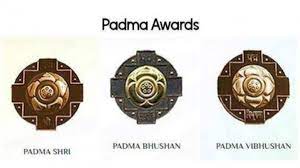
This year the President has approved conferment of 128 Padma Awards including 2 duo case (in a duo case, the Award is counted as one).
- The list comprises 4 Padma Vibhushan, 17 Padma Bhushan and 107 Padma Shri Awards.
- 34 of the awardees are women and the list also includes 10 persons from the category of Foreigners/NRI/PIO/OCI and 13 Posthumous awardees.
Padma Vibhushan (4):
- Prabha Atre (Art)
- Shri Radheyshyam Khemka – Posthumous (Literature and Education)
- General Bipin Rawat – Posthumous (Civil Service)
- Shri Kalyan Singh – Posthumous (Public Affairs)
Padma Bhushan(17):
- Shri Ghulam Nabi Azad (Public Affairs)
- Shri Victor Banerjee (Art)
- Gurmeet Bawa – Posthumous (Art)
- Shri Buddhadeb Bhattacharjee (Public Affairs)
- Shri Natarajan Chandrasekaran (Trade and Industry)
- Shri Krishna Ella and Smt. Suchitra Ella – Duo (Trade and Industry)
- Madhur Jaffery (Others-Culinary)
- Shri Devendra Jhajharia (Sports)
- Shri Rashid Khan (Art)
- Shri Rajiv Mehrishi (Civil Service)
- Shri Satya Narayana Nadella (Trade and Industry)
- Shri Sundararajan Pichai (Trade and Industry)
- Shri Cyrus Poonawalla (Trade and Industry)
- Shri Sanjaya Rajaram – Posthumous (Science and Engineering)
- Pratibha Ray (Literature and Education)
- Swami Sachidanand (Literature and Education)
- Shri Vashishth Tripathi (Literature and Education)
Foreign Contribution Regulation Act (FCRA):

The Supreme Court asked 6,000-odd NGOs to go back to the government for redressal of their grievances on non-renewal of their Foreign Contribution Regulation Act (FCRA) registration.
- The FCRA was enacted during the Emergency in 1976 in an atmosphere of apprehension that foreign powers were interfering in India’s affairs by pumping in funds through independent organisations.
- These concerns had been expressed in Parliament as early as in 1969.
- The law sought to regulate foreign donations to individuals and associations so that they functioned “in a manner consistent with the values of a sovereign democratic republic”.
- An amended FCRA was enacted under the UPA government in 2010 to “consolidate the law” on utilisation of foreign funds, and “to prohibit” their use for “any activities detrimental to national interest”.
- The law was amended again by the current government in 2020, giving the government tighter control and scrutiny over the receipt and utilisation of foreign funds by NGOs.
- Broadly, the FCRA requires every person or NGO wishing to receive foreign donations to be registered under the Act, to open a bank account for the receipt of the foreign funds in State Bank of India, Delhi, and to utilise those funds only for the purpose for which they have been received and as stipulated in the Act.
- They are also required to file annual returns, and they must not transfer the funds to another NGO.
- The Act prohibits receipt of foreign funds by candidates for elections, journalists or newspaper and media broadcast companies, judges and government servants, members of legislature and political parties or their office-bearers, and organisations of a political nature.
Exercise Paschim Lehar:

A joint maritime exercise Paschim Lehar (XPL-2022) conducted by the Indian Navy off the West Coast was concluded on 25 January 2022.
- The exercise was conducted over a duration of 20 days with an objective to validate operational plans of the Western Naval Command and enhance Inter-Service synergy among the Indian Navy, IAF, Indian Army and Coast Guard.
- The exercise was conducted under the aegis of FOC-in-C, Western Naval Command.
- The intra-theatre exercise included mobilisation and participation of over 40 ships and submarines of the Indian Navy.
Science And Technology Cooperation Between India And France:
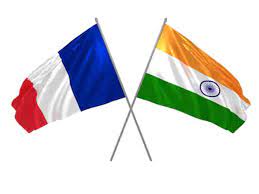
In an important milestone in S&T Cooperation between India and France an MoU was signed between CSIR and Institut Pasteur with a scope for cooperation in health research.
- CSIR and Institut Pasteur would be jointly researching and focusing on emerging and remerging infectious diseases and inherited disorders and enable delivery of effective and affordable healthcare solutions not only for the people of India and France but for the global good.
- The MoU provides for developing potential scientific and technological cooperation and networking in advanced and emerging areas of Human Health between scientists and institutes/laboratories of CSIR and Institut Pasteur and its international network.
- The Council of Scientific and Industrial Research (CSIR) was established by the Government of India in 1942 as an autonomous body that has emerged as the largest research and development organisation in India.
INS Khukri:
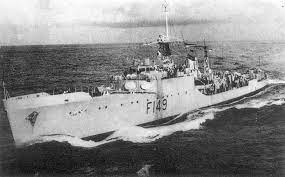
INS Khukri, lead ship of the Indian Navy’s Khukri class corvettes and an indigenous surface-to-surface missile fitted vessel that had the distinction of being part of both, the Western and Eastern Fleets, is scheduled to be handed over to the Diu Administration on 26 January 2022.
- Built by Mazagon Dock Shipbuilders, the ship was commissioned on 23 August 1989 in Mumbai.
- After more than 32 glorious years of service to the nation and having participated in all forms of naval operations, the ship was decommissioned in a solemn ceremony on 23 December 2021.
- The decommissioned vessel is the second ship of the Navy to carry the name INS Khukri, the first having been lost during the 1971 Indo-Pak War off the coast of Diu.
- As part of developing and revitalising the Khukri Memorial at Diu, the Diu Administration has plan to develop the ship as a full-scale museum.
Corruption Perception Index 2021:
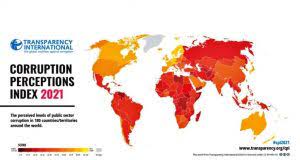
The Corruption Perception Index (CPI) 2021 was released by Transparency International.
- Overall, the CPI shows that control of corruption has stagnated or worsened in 86% of countries over the last decade.
- The Index ranks 180 countries and territories by their perceived levels of public sector corruption according to experts and businesspeople.
- It relies on 13 independent data sources and uses a scale of zero to 100, where zero is highly corrupt and 100 is very clean.
- More than two-thirds of countries (68%) score below 50 and the average global score remains static at 43. Since 2012, 25 countries significantly improved their scores, but in the same period 23 countries significantly declined.
- This year, the top countries are Denmark, Finland and New Zealand, each with a score of 88. Norway (85), Singapore (85), Sweden (85), Switzerland (84), the Netherlands (82), Luxembourg (81) and Germany (80) complete the top 10.
- South Sudan (11), Syria (13) and Somalia (13) remain at the bottom of the index.
- Countries experiencing armed conflict or authoritarianism tend to earn the lowest scores, including Venezuela (14), Afghanistan (16), North Korea (16), Yemen (16), Equatorial Guinea (17), Libya (17) and Turkmenistan (19).
- India ranked 85 among 180 countries in the current index (86 in 2020 and 80 in 2019). Transparency International gave India a CPI score of 40.
- Except Bhutan, all of India’s neighbours are ranked below it. Pakistan dropped 16 spots in the index and was ranked at 140.
Small Satellite Launch Vehicle:
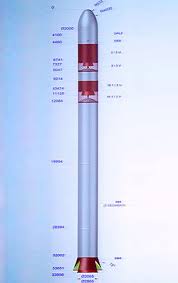
The Indian Space Research Organisation (ISRO) chairman has mentioned the launch of an “SSLV-D1 Micro SAT in April 2022”.
- The SSLV (Small Satellite Launch Vehicle) aims to cater to the market for the launch of small satellites into Earth’s low orbits that has emerged in recent years to cater to the needs of developing countries, universities for small satellites, and private corporations.
- It is the smallest vehicle weighing only 110-tonne. It will take only 72 hours to integrate, unlike the 70 days taken now for a launch vehicle.
- It can carry satellites weighing up to 500 kg to a low earth orbit while the tried and tested Polar Satellite Launch Vehicle (PSLV) can launch satellites weighing in the range of 1000 kg.
- SSLV is a three-stage all solid vehicle and has a capability to launch up to 500 kg satellite mass into 500 km Low Earth Orbit (LEO) and 300 kg to Sun Synchronous Orbit (SSO).
- It is perfectly suited for launching multiple microsatellites at a time and supports multiple orbital drop-offs.
- The key features of SSLV are low cost, with low turn-around time, flexibility in accommodating multiple satellites, launch on demand feasibility, minimal launch infrastructure requirements, etc.
- The Government has sanctioned a total cost of Rs. 169 Crores for the development project including the development & qualification of the vehicle systems and the flight demonstration through three development flights (SSLV-D1, SSLV-D2 & SSLV-D3).
- ISRO’s new chairman Dr Somanath is credited with designing and developing the SSLV during his tenure as director of the Vikram Sarabhai Space Centre in Thiruvananthapuram since 2018.
- The maiden flight of the SSLV was scheduled to launch in July 2019 but that has since been delayed due to setbacks from Covid-19 and other issues.
Development Project In The Great Nicobar Island:
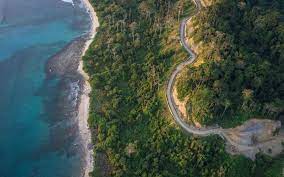
The recently released draft Environment Impact Assessment (EIA) report for the mega development project in the Great Nicobar Island has raised serious questions related to submission of incorrect or incomplete information, scientific inaccuracy and failure to follow appropriate procedure.
- A committee of the Ministry of Environment Forest and Climate Change (MoEFCC) issued Terms of Reference (ToR) to prepare the EIA report in May 2021.
- Earlier, a plan for the sustainable and holistic development of the 680 sq km, fragile Little Andaman Island in the Andaman and Nicobar group had raised the alarm among conservationists.
- NITI Aayog-piloted Rs. 72,000-crore integrated project in Great Nicobar includes construction of a mega port, an airport complex, a township spread over 130 sq. km of pristine forest and a solar and gas-based power plant.
- Andaman and Nicobar Islands Integrated Development Corporation Ltd. (ANIIDCO) is the project proponent.
- Ecologists and researchers have been raising concerns about this project for over a year.
- The area of the island is mentioned in one place as 1,045 sq. km, while it is 910 sq. km (the current official figure) in another.
- It was reported that the Galathea port area does not record any coral reefs, whereas the Zoological Survey of India (ZSI) study shows that the coral reef spread over 116 hectares in Galathea Bay.
- Galathea Bay is an iconic nesting site in India of the enigmatic Giant Leatherback, the world’s largest marine turtle—borne out by surveys done over three decades.
- 330 species of fauna are recorded in the island, while the same ZSI study puts the number at more than double at 695.
- The EIA says in another place no migratory birds have been reported from Great Nicobar, whereas it is well known that these islands are located along two globally significant bird flyways and more than 40 species of migratory birds have been recorded from Great Nicobar.
- The EIA report was expected to have details of the project proponent’s (ANDICO) environmental policy such as its standard operating process, procedures for highlighting violation of environmental and forest norms and for ensuring compliance with environmental clearance conditions.
- The undertaking, issued by the Directorate of Tribal Welfare, the agency tasked with the primary job of securing the rights of the indigenous people on the islands.
- It first assures that “the right of the tribal shall be well protected and taken care of” and,
- Then goes on to conclude that “whenever any exemption from the existing regulations/policies/law of the land are required to be provided for the execution of the project, this Directorate will seek required exemptions(s) from the competent authority to that effect”.
The America COMPETES Act:

The United States has unveiled the ambitious America Creating Opportunities for Manufacturing, Pre-Eminence in Technology, and Economic Strength (COMPETES) Act, 2022, which proposes to open up new vistas for talented individuals from across the world with a new start-up visa.
- It aims to make the supply chains stronger and reinvigorate the innovation engine of the country’s economy to outcompete China and the rest of the world for decades to come.
- USD 52 billion to encourage semiconductor production in the US and USD 45 billion for grants and loans to improve supply chain resilience and manufacturing, among other programs.
- Funding to address social and economic inequality, climate change and immigration. For example, it offers an exemption for STEM (science, technology, engineering or mathematics) PhDs from the green card limit and creates a new green card for entrepreneurs.
- A Green Card holder (permanent resident) is someone who has been granted authorization to live and work in the United States on a permanent basis.
- The bill issues USD 600 million a year to build manufacturing facilities to make the United States less dependent on solar components manufactured in Xinjiang, China.
- It creates a new “W” classification of non-immigrants for entrepreneurs with an ownership interest in a start-up entity, essential employees of a start-up entity, and their spouses and children.




